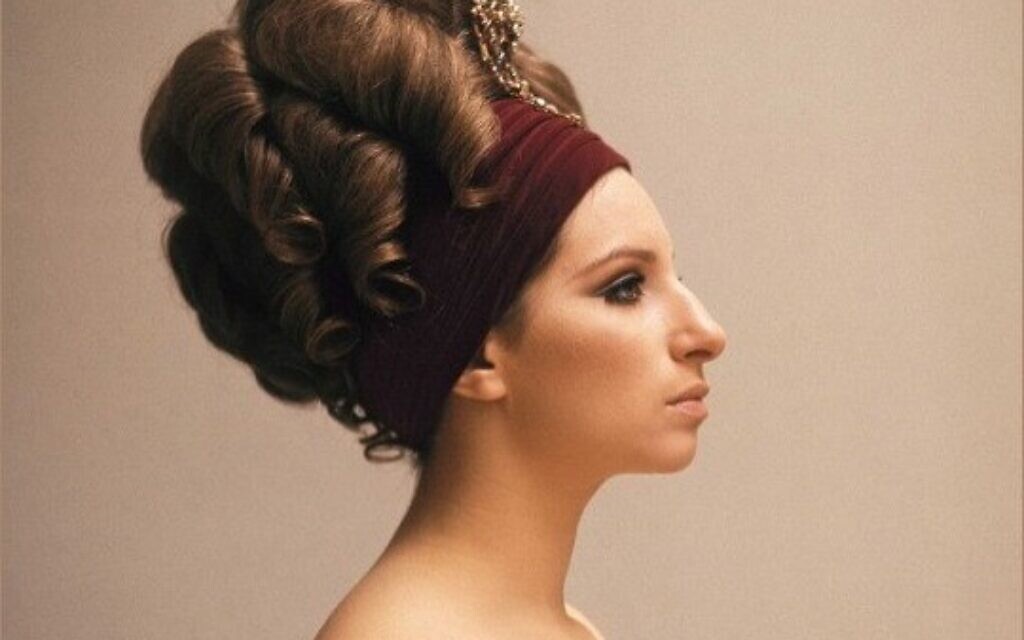Want to know the truth about Barbra Streisand?
The Jewish icon with the greatest voice has finally written her autobiography...and she will even read it to you
Her autobiography is 970 pages, excluding prologue, epilogue and credits. With its 59 chapters, Barbra Streisand’s tome is rivalled in length only by the 68 chapters of Jawaharlal Nehru’s autobiography, Toward Freedom, which he wrote while in prison before becoming the first Prime Minister of India.
Nehru turned his book around in a year, but it took 40 years to convince the actress, singer and director to tell her story, because, as she writes: “I prefer to live in the present.”
But after six decades of people making up stories about her, describing her as ‘difficult to work with’ and constantly poking fun at her nose – “it got more press than I did” – Barbra decided to dig out her journals. The first chapter started back in the 1990s and now in complete form, My Name is Barbra is the result.
Get The Jewish News Daily Edition by email and never miss our top stories Free Sign Up
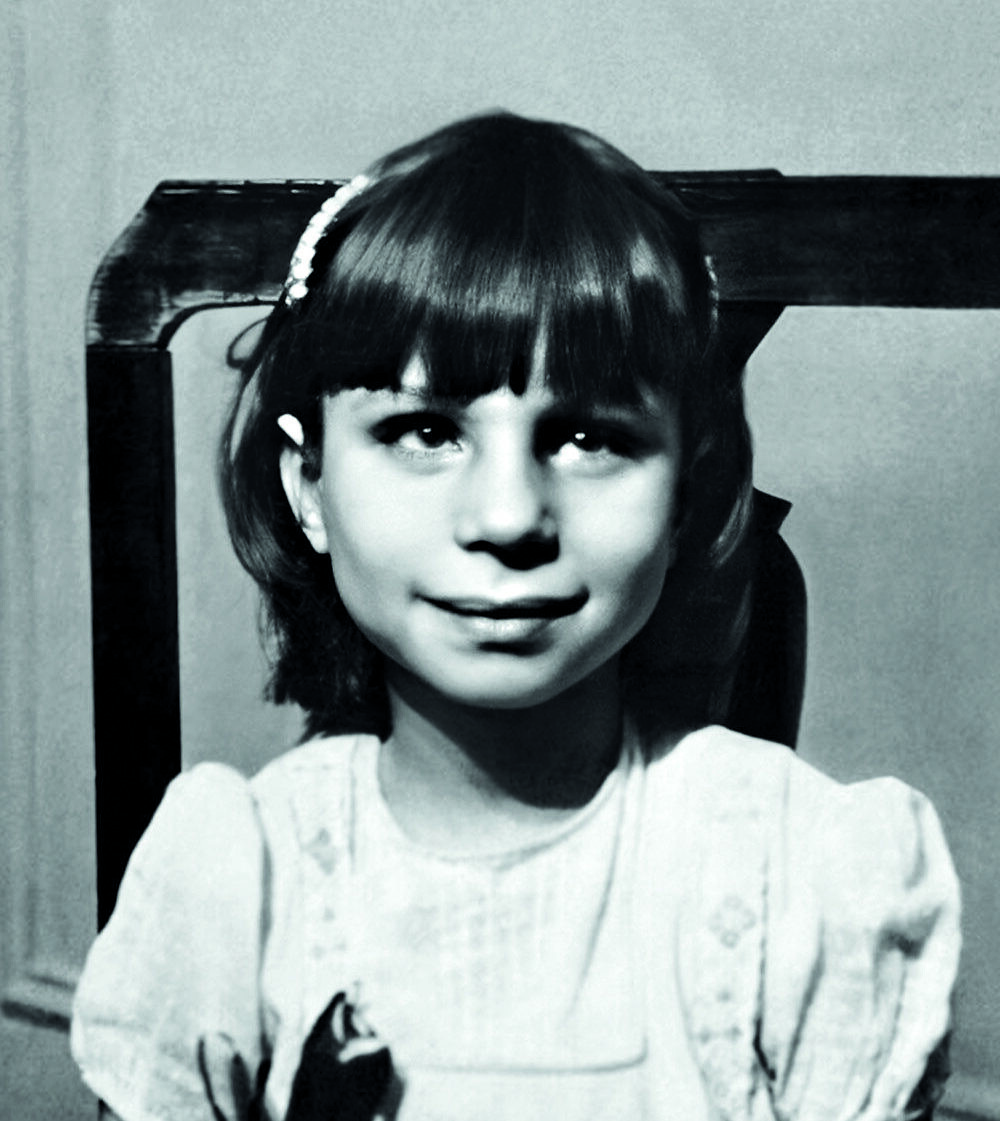
For her many fans, this book is the definitive gift and, fittingly, in the first chapter – Pulaski Street – Barbra writes about Hanukkah (US spelling) and the smell of her grandmother Esther’s cinnamon cookies. After her teacher father Emanuel died in 1943 aged 35, Barbra, then 15 months, and her nine-year-old sister Shelly, went with their widowed mother, Diana, to live at their grandparents’ flat in Brooklyn.
As a venerated entertainment figure of the faith, the expectation was that Barbra’s book would be peppered with enough yiddishkeit to warm the kishkas. But she has, in fact, gone overboard balaboosta-style with a generous serving of anecdotes beginning with five-year-old Barbra going to shul with her grandpa, Louis Rosen, being called fabrent (on fire) by her bubbe and learning Hebrew at a yeshiva.
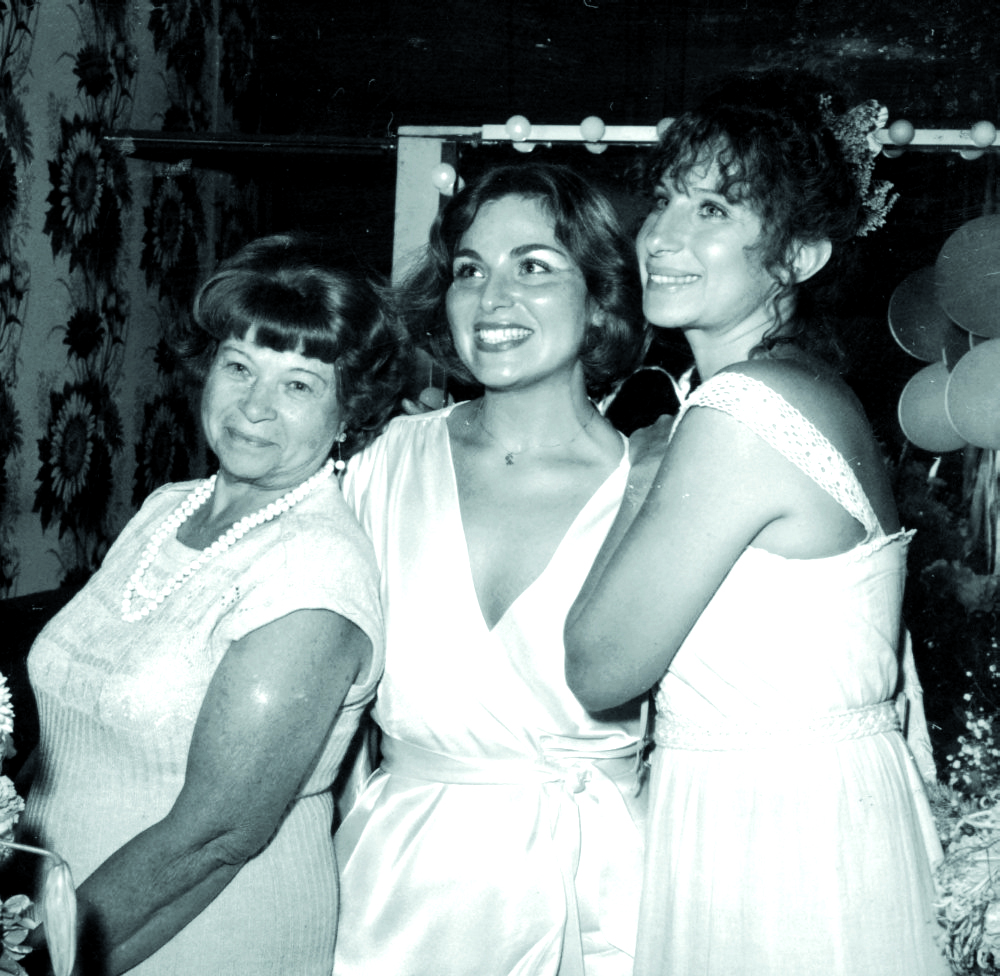
There, a teacher told her she shouldn’t say Christmas. “But as soon as she walked out the room, I kept repeating ‘Christmas! Christmas!’ And prayed to God that he wouldn’t strike me dead.”
Years later, it was her Hebrew learning that drew her to the short story Yentl the Yeshiva Boy by Isaac Bashevis Singer. Arriving mysteriously in a package from a producer in the winter of 1968, when she finally read it, Barbra was “captivated by the tale of the young Jewish woman in 19th-century Poland, whose soul thirsted to study Torah”.
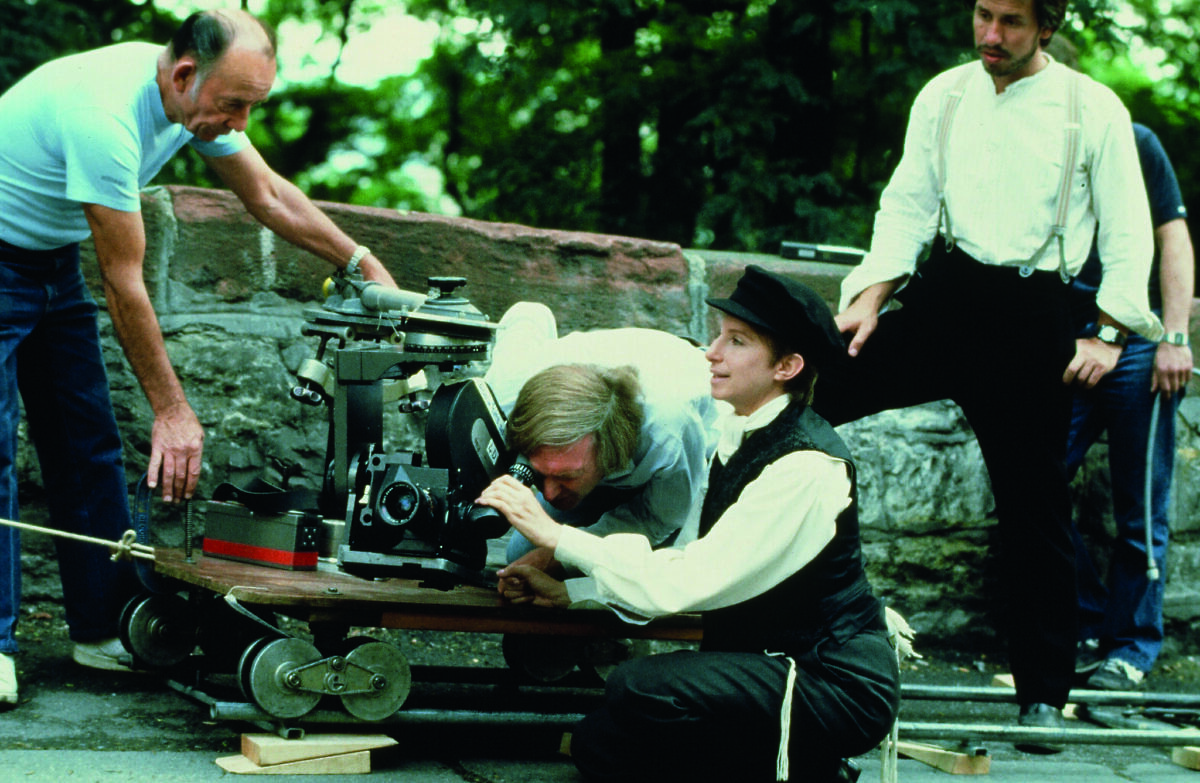
Many tried to discourage her from turning that story into a film she wanted to direct and star in… “You can’t play a man. It’s ridiculous,” said her then partner Jon Stewart in 1978. But as Barbra admits with unflinching honesty, as she does throughout her book, “when someone tells me I can’t do something, it makes me even more determined to do it”.
The evidence of that determination is written large in the chapter Papa Can You Hear Me? where she documents the disinterest of studio executives (even the Jewish ones) in the project she loved. Barbra felt they were afraid the subject was ‘too Jewish’, adding, “I think Jews are still ‘the other,’ in some ways.”
In her book, she references Mark Twain’s 1899 essay Concerning the Jews, in which he equates anti-Jewish hostility with jealousy. In citing Twain, Barbra demonstrates her scholarly grasp of antisemitism, and her knowledge extends to many other subjects, particularly script-editing, in this compelling opus.
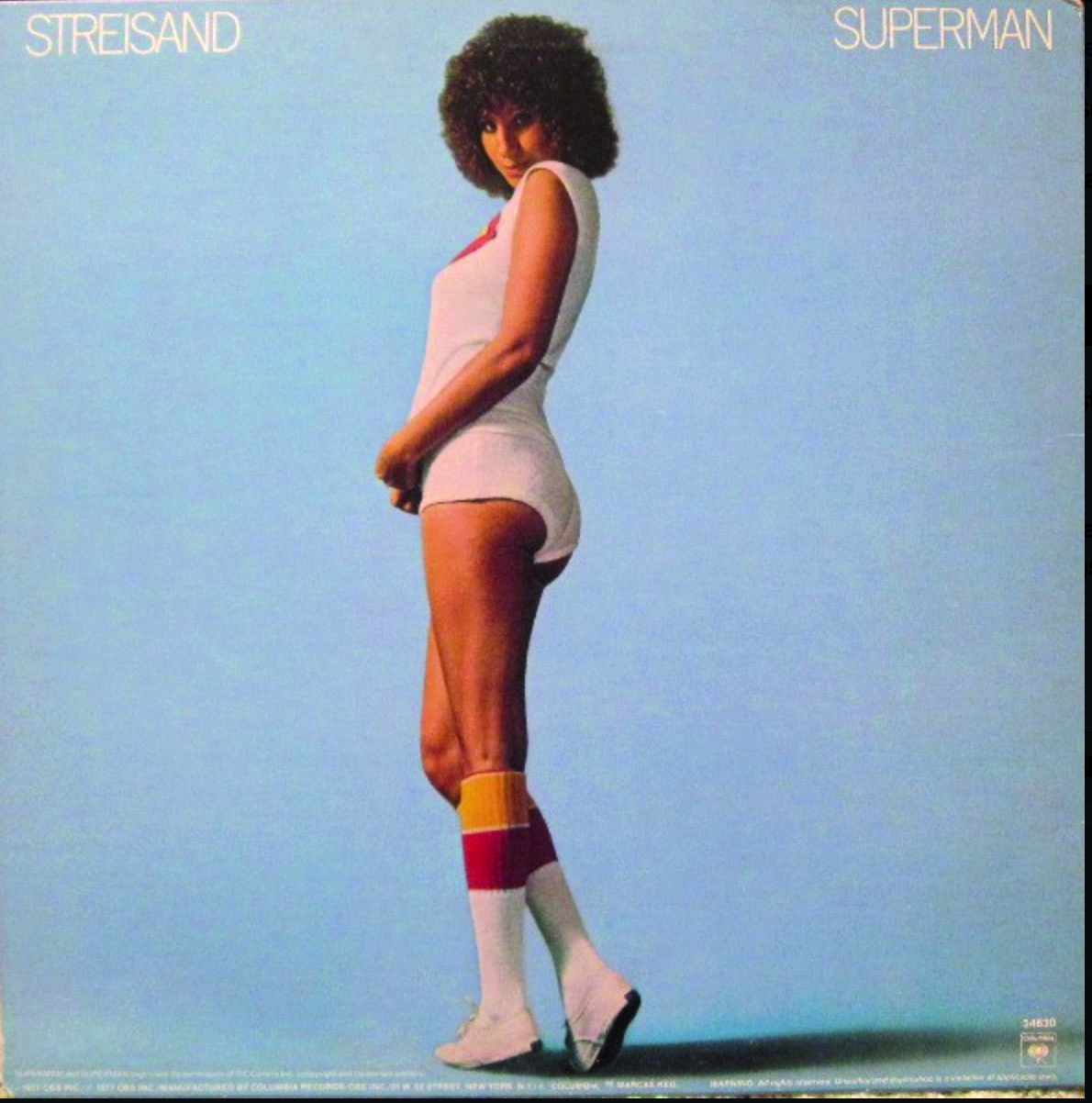
She also includes politics, her passion, and writes about her close friendship with the Clintons and her very public criticism of Donald Trump, which she sang about in 2018 in her hit song Don’t Lie to Me on the album Walls. Barbra is also obsessed with environmental and climate issues and contributes to the organisations via the Barbra Streisand Foundation, which also gives millions of dollars to charity every year.
We read about her directing Yentl and its multiple awards, though the absence of an Oscar for the director clearly still irks.To remember all the production prep, the Talmud discussions and camera angles during the shoot in Prague is impressive to those who can barely recall a phone number, but she can because of her journals.
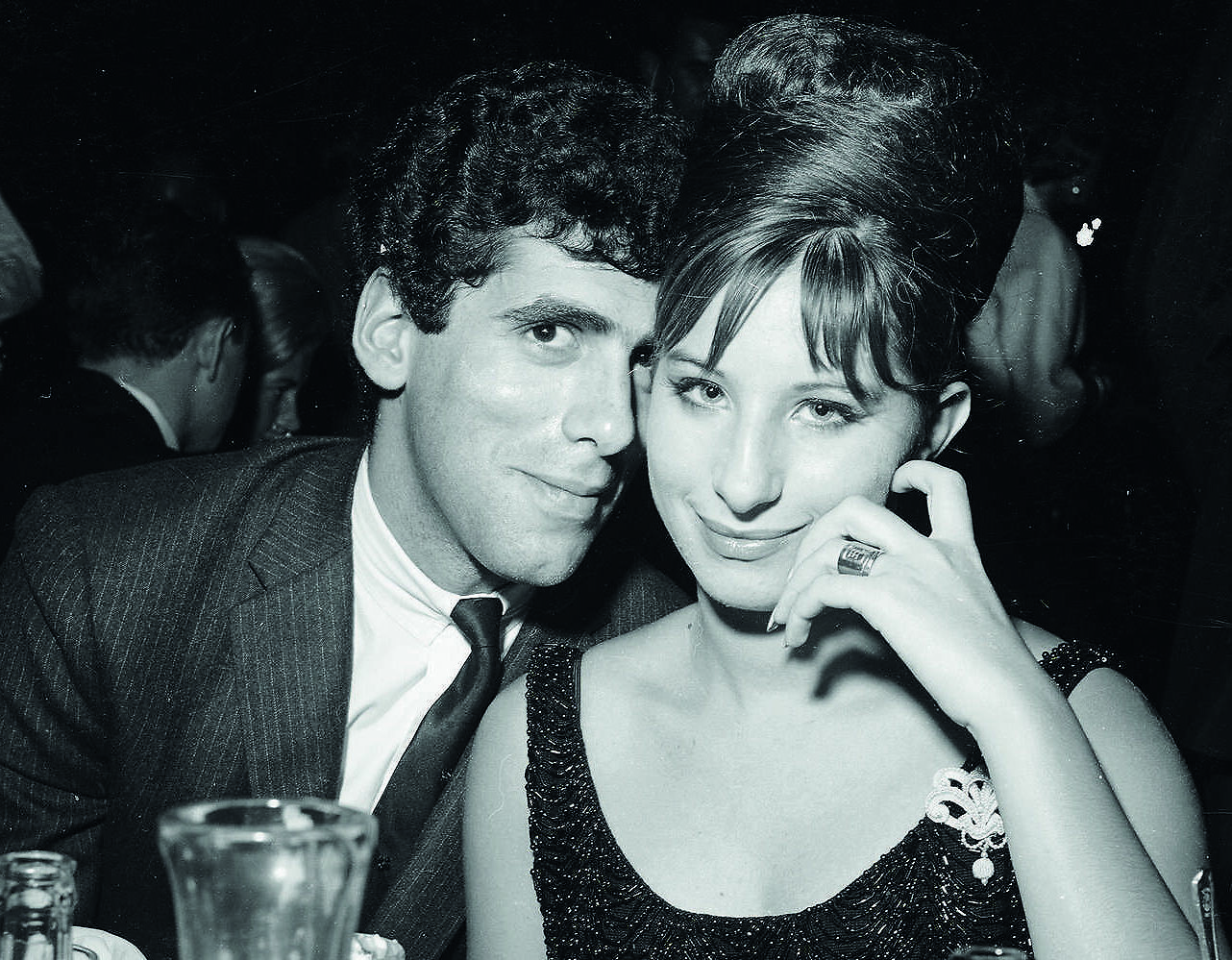
She recalls her son Jason – by Jewish husband actor Elliott Gould – studying for his barmitzvah and how she quizzed the rabbi about her Yentl script. Charmingly, she also reveals that the Jewish day school connected to the rabbi’s synagogue was closing and she gave a big enough donation to keep it open and name it after her father.
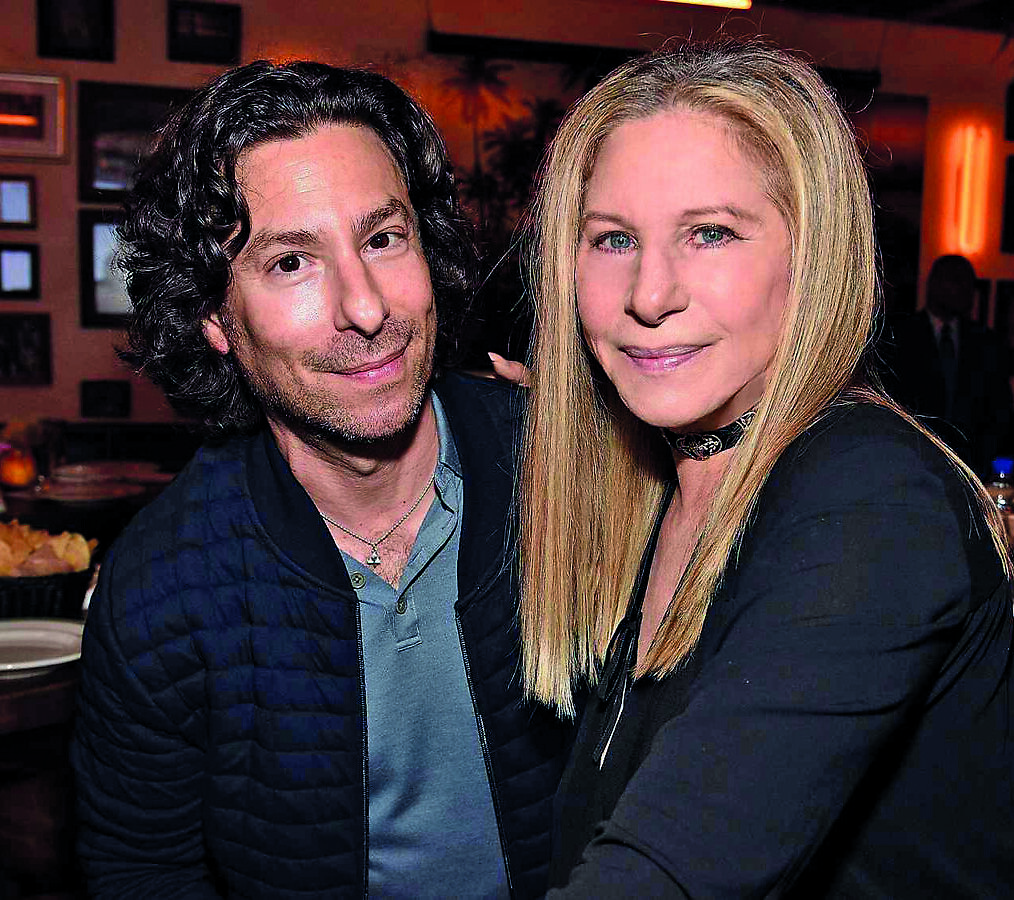
My Name is Barbra is dedicated to the father she never knew and the mother she did. This signposts the famously toxic relationship between the star and her mother, who appeared to resent her daughter’s fame. Barbra writes that she realised from the age of seven that she could not rely on Diana. And things only got worse, as she reveals when writing about her first live show in many years, whichwas in Las Vegas in 1993. Diana, who had front-row tickets, chose to go elsewhere, while others queued hoping to see the legend. My Name is Barbra is full of many fascinating and deeply personal experiences, though arguably to truly appreciate the book, the audible version is best because it is read by Barbra.
The monumental challenge of reading the 970 pages seems effortless for this woman, who wanted to be an actress since she was a child and hearing her rich, expressive Brooklyn-accented voice and extra ad-libs is like having her in the room with you. Her familiar tones bring alive such events as when she saw The Diary of Anne Frank at New York’s Cort Theatre aged 14.
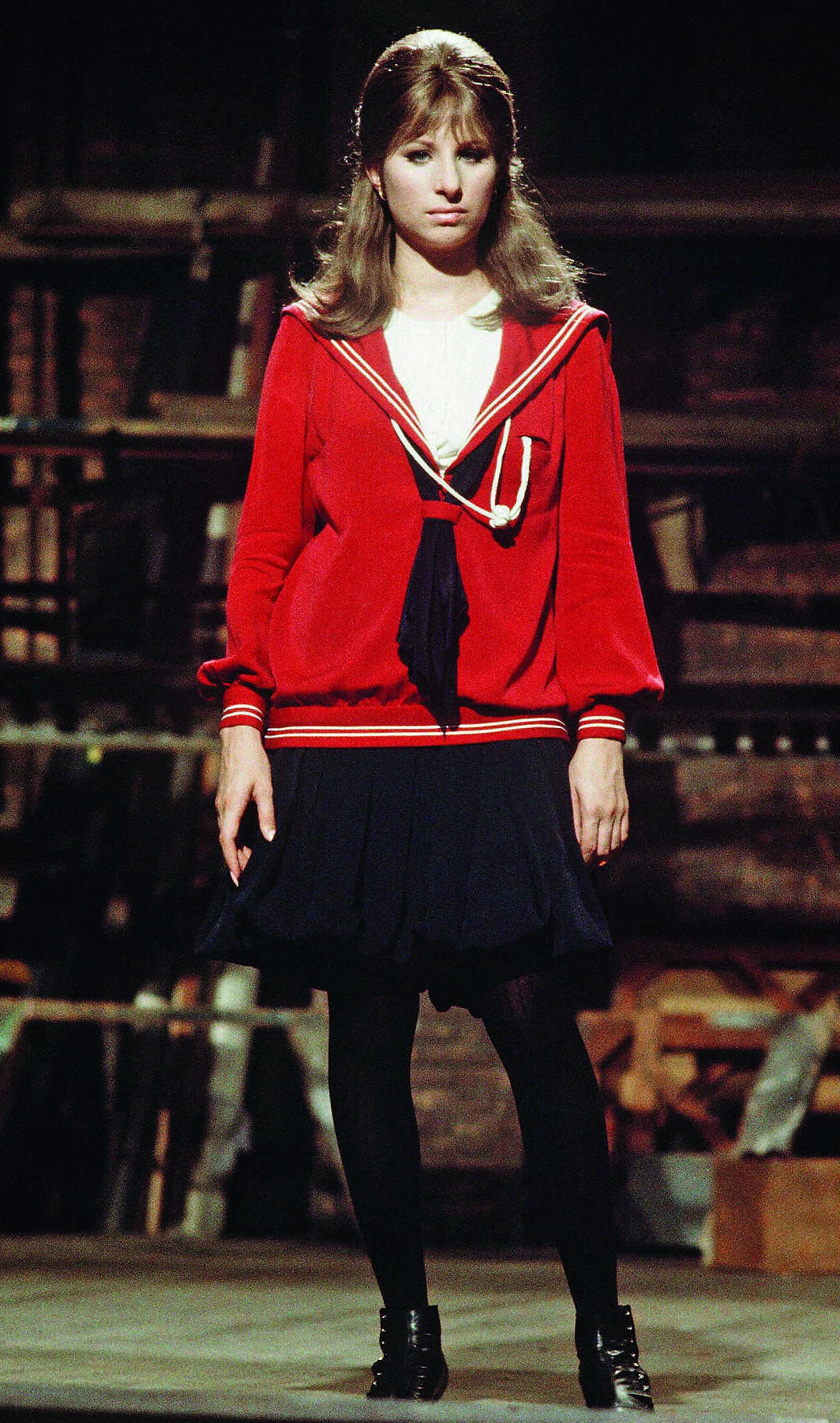
“The actors were far away, but we could see the whole sweep of the stage… there’s something to be said for the bird’s-eye view. Now that I can afford expensive seats, I’m not sure they’re really better.”
The most expensive seats I ever bought were for seeing Barbra. I went with my husband and my late mother and we cried almost from her first note to the last. Our community was well represented that night and there was no doubt a sigh of relief, albeit a small one, from that same crowd when Barbra belatedly acknowledged the October 7 atrocities and then appeared on Stephen Colbert’s show commenting on the
rising antisemitism in the United States.
“It’s sad what’s going on today. People have to live together, even though they’re different religions or whatever,” she said.
She then expressed more sadness over the thousands of deaths in Israel and Gaza, while stressing that it was difficult to promote her book while “this deadly, combustible thing is happening in the world”. She continued: “We all want the same thing. We all want love in our hearts. We all want family. We all want to feel secure. This is beyond religion. This is insanity for us not to learn how to live together in peace.”
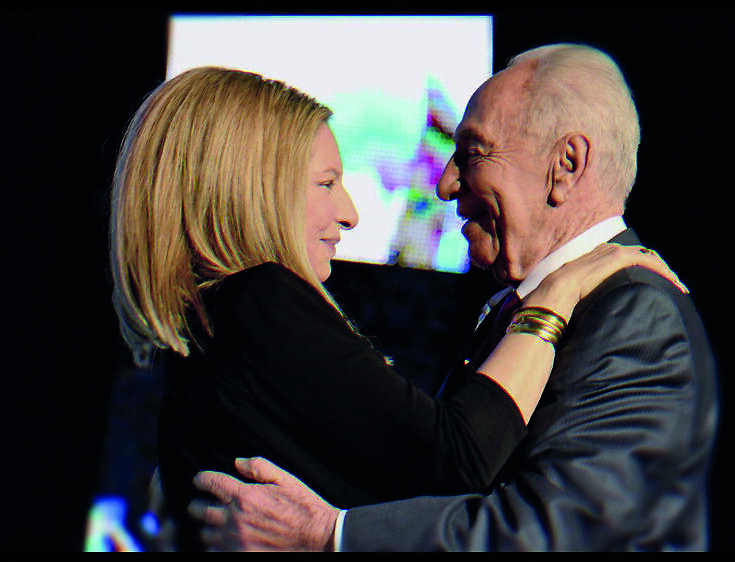
In her book, Barbra shares the details of her global publicity tour for Yentl, which included a stop in Israel, where she dedicated the Emanuel Streisand Building for Jewish Studies at the Hebrew University in Jerusalem. The “perpetual student” was tempted to enroll, but instead spent time with Shimon Peres. “Unlike most people, who will stare… he came right over and gave me a hug.” For Barbra, Peres was just as she imagined her father to be. “He seemed to take the most heartfelt personal pride in me as a Jewish girl who had made good.”
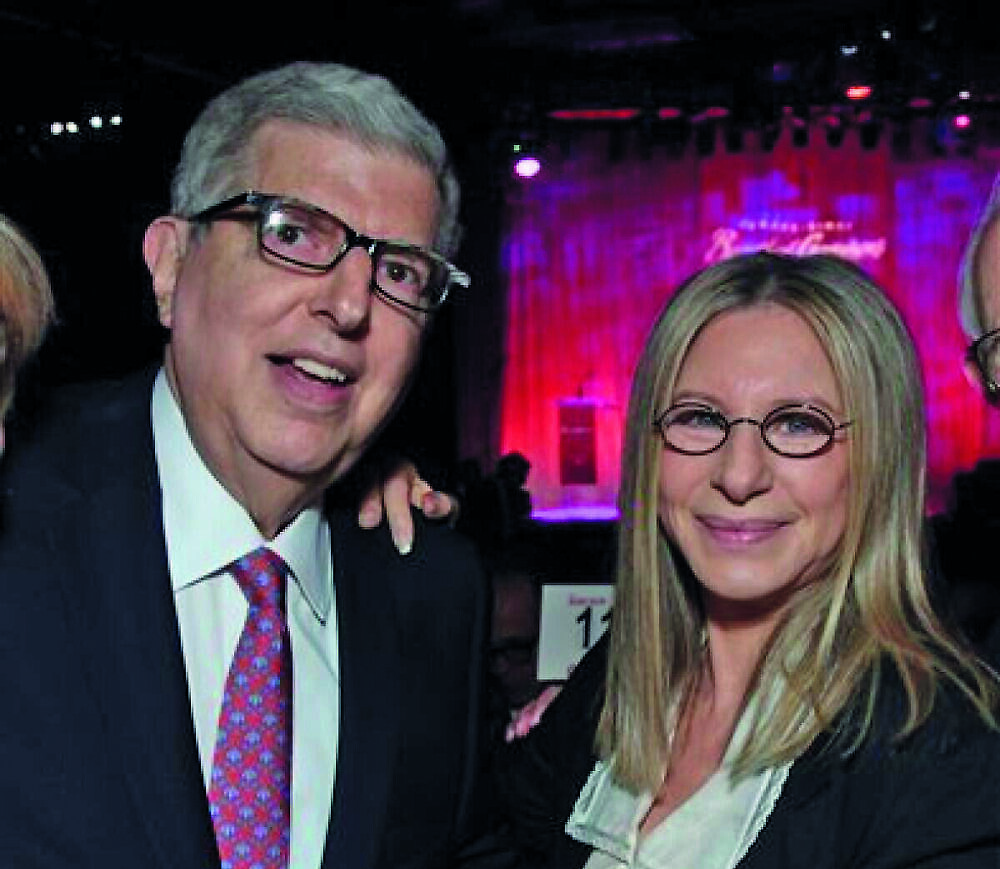
There is no shortage of other Jewish heroes in this diary, as Golda Meir features, as well as the late Stephen Sondheim and my mother’s favourite composer, the late Marvin Hamlisch, who punctuates multiple pages and always fondly with the emphasis on their shared Brooklyn heritage and ailments.
“We were both kind of hypochondriacs… always having allergy or sinus attacks. ‘Sinus, that’s a Jewish thing,’ Marvin would say, which made me laugh.” She knew exactly what he meant and the phrase “It’s a Jewish thing” became a running joke between them. When Barbra reads this aloud or you read it for yourself, it truly warms the kishkas, as we always hoped.
My Name Is Barbra by Barbra Streisand is out now, published by Century, £35

Thank you for helping to make Jewish News the leading source of news and opinion for the UK Jewish community. Today we're asking for your invaluable help to continue putting our community first in everything we do.
For as little as £5 a month you can help sustain the vital work we do in celebrating and standing up for Jewish life in Britain.
Jewish News holds our community together and keeps us connected. Like a synagogue, it’s where people turn to feel part of something bigger. It also proudly shows the rest of Britain the vibrancy and rich culture of modern Jewish life.
You can make a quick and easy one-off or monthly contribution of £5, £10, £20 or any other sum you’re comfortable with.
100% of your donation will help us continue celebrating our community, in all its dynamic diversity...
Engaging
Being a community platform means so much more than producing a newspaper and website. One of our proudest roles is media partnering with our invaluable charities to amplify the outstanding work they do to help us all.
Celebrating
There’s no shortage of oys in the world but Jewish News takes every opportunity to celebrate the joys too, through projects like Night of Heroes, 40 Under 40 and other compelling countdowns that make the community kvell with pride.
Pioneering
In the first collaboration between media outlets from different faiths, Jewish News worked with British Muslim TV and Church Times to produce a list of young activists leading the way on interfaith understanding.
Campaigning
Royal Mail issued a stamp honouring Holocaust hero Sir Nicholas Winton after a Jewish News campaign attracted more than 100,000 backers. Jewish Newsalso produces special editions of the paper highlighting pressing issues including mental health and Holocaust remembrance.
Easy access
In an age when news is readily accessible, Jewish News provides high-quality content free online and offline, removing any financial barriers to connecting people.
Voice of our community to wider society
The Jewish News team regularly appears on TV, radio and on the pages of the national press to comment on stories about the Jewish community. Easy access to the paper on the streets of London also means Jewish News provides an invaluable window into the community for the country at large.
We hope you agree all this is worth preserving.
-
By Brigit Grant
-
By Laurent Vaughan - Senior Associate (Bishop & Sewell Solicitors)
-
By Laurent Vaughan - Senior Associate (Bishop & Sewell Solicitors)
-
By Laurent Vaughan - Senior Associate (Bishop & Sewell Solicitors)
-
By Laurent Vaughan - Senior Associate (Bishop & Sewell Solicitors)


